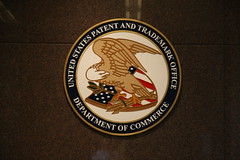Patent simulation study concludes current patent system hampers innovation
By Kristopher A. Nelson
in
July 2009
600 words / 3 min.
Tweet
Share
A recently published law review article concludes that experiments with “PatentSim,” “a multi-user interactive simulation of patent and non-patent (commons and open source) systems,” do not support the general justification of our current patent system.
Please note that this post is from 2009. Evaluate with care and in light of later events.

- Image by cytech via Flickr
A recently published law review article takes an interesting approach to testing the hypothesis that patents foster innovation:
Patent systems are often justified by an assumption that innovation will be spurred by the prospect of patent protection, leading to the accrual of greater societal benefits than would be possible under non-patent systems. However, little empirical evidence exists to support this assumption. One way to test the hypothesis that a patent system promotes innovation is experimentally to simulate the behavior of inventors and competitors under conditions approximating patent and non-patent systems. Employing a multi-user interactive simulation of patent and non-patent (commons and open source) systems (“The Patent Game”), this study compares rates of innovation, productivity, and societal utility.
ReadWriteWeb has a good write-up describing the study and its conclusions:
The game is an online simulation of a pure patent system, a patent-free commons system, and a mixed system. Within each environment, first year university students were asked to license, assign, infringe, and enforce patents. The study found that while a mixed patent environment and pure patent environment did not offer substantially different results, students in a commons system generated significantly higher rates of innovation, productivity and social utility. Essentially, the study supports what Lawrence Lessig and free culture advocates have been saying for years: a society free from intellectual property monopolies is a society that is better off.
The article concludes that experiments with “PatentSim” do not support the general justification of our current patent system:
Data generated thus far using PatentSim suggest that a system combining patent and open source protection for inventions (that is, similar to modern patent systems) generates significantly lower rates of innovation (p<0.05), productivity (p<0.001), and societal utility (p<0.002) than does a commons system. These results are inconsistent with the orthodox justification for patent systems. However, they do accord well with evidence from the increasingly important field of user and open innovation.
This comports well with my own feelings about the patent system after research and work with intellectual property issues during and after law school. As the article points out, the Constitutional basis of our patent system is to “promote the progress of science and the useful arts” – if this isn’t happening, then our system is not living up to its Constitutional mandate, and ought to be rethough (not, I think, abandoned).
Modern treaty obligations that the United States has supported might make this more difficult to accomplish, since now we are also bound by international obligations as well as constitutional ones (although the courts consistently say the Constitution trumps international treaties and agreements). But simply because change is difficult does not mean we shouldn’t consider it – and doing so may well benefit us and encourage business and innovation.
Related articles by Zemanta
- Does Copyright Foster or Hinder Innovation? (inpropriapersona.com)
- Do Patents Stimulate R&D; Investment and Promote Growth? (inpropriapersona.com)
- Economists: Abolish Copyright & Patents to Save the Economy (inpropriapersona.com)
